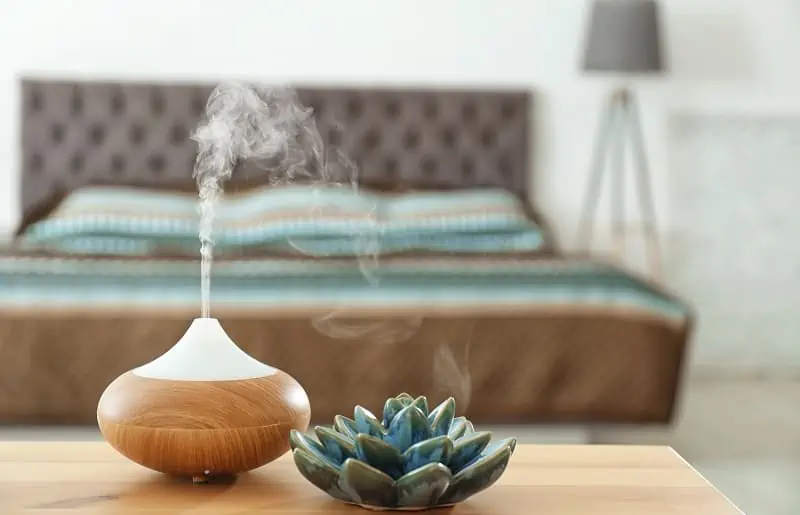Utilizing Aromatherapy in the Home for Various Environments
The olfactory ability to evoke significant memories and elicit a range of emotions is remarkable. As a result, incorporating aromatherapy into home routines has become increasingly popular.
The therapeutic benefits of aromatherapy, a holistic approach that heals through scent, have been recognized for millennia. This practice continues to complement conventional and homeopathic treatments.
Ancient Practice
- Home Aromatherapy
Similar to homeopathy, acupuncture, and reiki, aromatherapy stems from the ancient knowledge of Eastern peoples, who have used essential oils to treat ailments for over five thousand years. By extracting essences from flowers, roots, leaves, herbs, seeds, and woods, ancient civilizations treated various physical, mental, and spiritual conditions.
There are records that Hippocrates, regarded as the ‘father of medicine,’ used essential oil vapors to combat plagues in Greece, indicating the initial use of aromatherapy primarily for spiritual purposes.
The Diffuser as an Essential Aromatherapy Tool
- Home Aromatherapy
The simplest way to implement home aromatherapy is through the use of a diffuser, allowing for controlled scent dispersion and preventing olfactory overload.
The stick diffuser operates coldly, releasing aromas through the evaporation of grain alcohol. To use it, mix three tablespoons of essential oil, two of alcohol, and 150 ml of water. The sticks inserted in the solution should be flipped periodically, maintaining the effectiveness of the aroma for about three weeks.
Alternative Application Methods
- Aromatherapy: Application Methods
Various alternatives exist for employing aromatherapy, including:
- Immersion bath: add 7 to 12 drops of essential oil to the bath water, suitable for bathtubs, ofuro, or whirlpool.
- Aromatic necklace: allows for gradual fragrance release; it is recommended to apply 2 to 3 drops of essential oil to the cotton placed in the pendant.
- Foot soak: combine 15 drops of essential oil with one tablespoon of vegetable oil, adding it to warm water.
- Inhalation: can be performed using a handkerchief with a few drops of essence, a dedicated inhaler, or applying directly to the wrists.
- Massage: prepare a blend of 120 ml of vegetable oil with 50 drops of essential oil for use in relaxing massages.
- Spray: dissolve 40 drops of essential oil in 60 ml of grain alcohol and 40 ml of deionized water, using a sprayer.
- Bed linens: apply 2 drops to the pillow and 4 to the sheet before sleeping.
- Vaporization: without a vaporizer, place 12 drops of essential oil in a container with hot water, inhaling the steam under a towel.
Room-Specific Aromatherapy
- Home Aromatherapy
Specific aromas can be selected for each area of the home to promote distinct sensations:
- Living room: citrus scents like lemon and tangerine encourage harmony, comfort, and joy.
- Kitchen: prefer fragrances of herbs and spices, avoiding combinations that conflict with food aromas.
- Bedroom: opt for calming fragrances like lavender, marjoram, aloe vera, and Roman chamomile, facilitating sleep.
- Bathroom: scents such as lemongrass, mint, pine, and tea tree are recommended.
- Office: choose essences like mint, lemon, and rosemary, which stimulate mental clarity, creativity, memory, and concentration.
Essential Oil Variety
- Home Aromatherapy
The direct interaction of essences with the central nervous system offers significant therapeutic benefits, including:
- Roman Chamomile: relieves muscular pain, rheumatism, migraine, and is beneficial for dermatological, digestive, and gynecological treatments.
- Rosemary: enhances memory and concentration, and relieves headache and mental fatigue.
- Geranium: acts as a natural repellent and aids in throat pain, circulatory problems, and menopausal symptoms.
- Lavender: known for its relaxing effect, it is effective against stress, insomnia, anxiety, and depression.
- Eucalyptus: combats respiratory illnesses and purifies the air.
- Peppermint: indicated for mental fatigue, stress, migraines, and dizziness.
- Rose: useful in adverse emotional conditions and benefits the hepatic and circulatory systems.
- Lemon: reduces blood pressure and strengthens the immune and digestive systems.
- Tea Tree: has antiviral, anti-infectious, and bactericidal properties, making it ideal for deodorization.
Thus, aromatherapy proves to be a valuable resource for enhancing well-being in residential environments.







